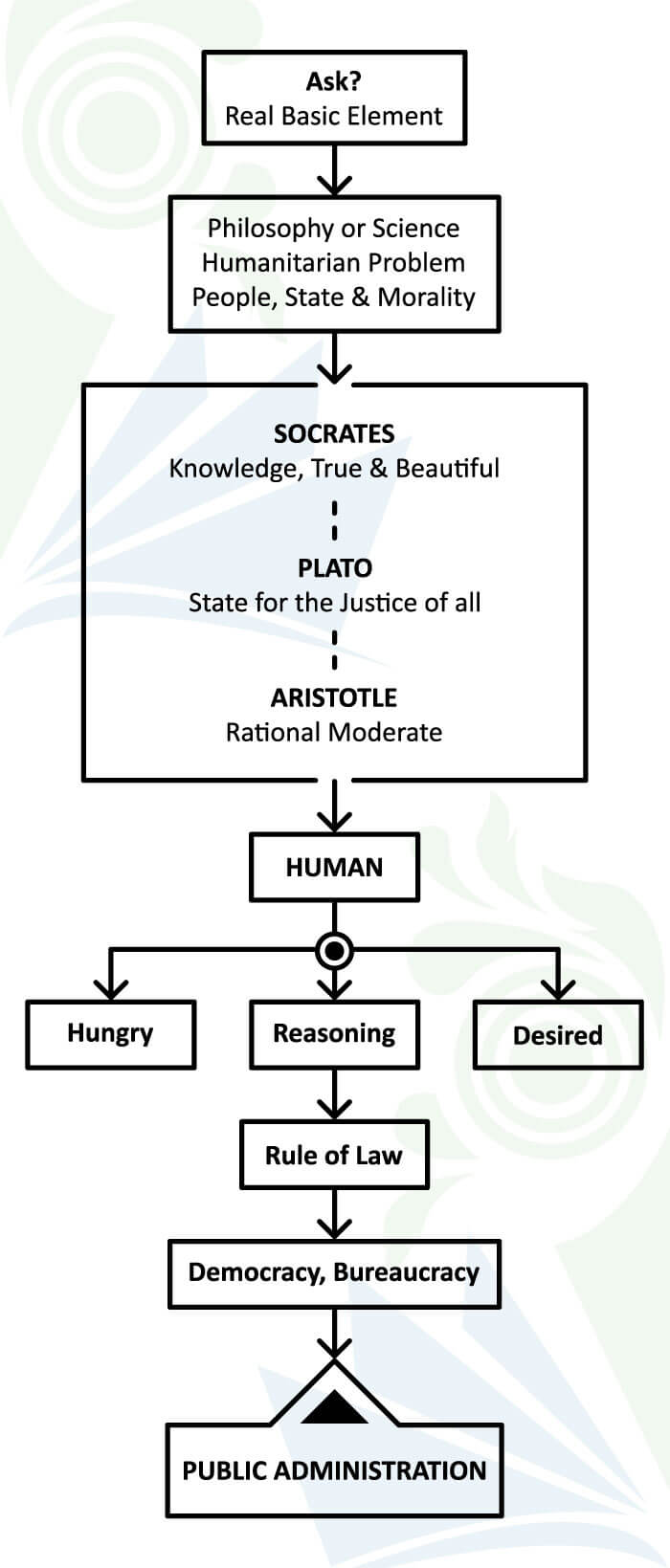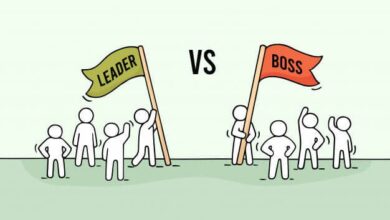Difference between Development Administration & Traditional Public Administration
In the concept of development administration and traditional public administration; it has already been said earlier that public administration is employed for translating governmental programs into execution. Before its conceptual development, it was prevalent since the growth of government. As a process of operations in human activities and relationships, it can scarcely be reduced to any common principle except at relatively high generality levels that are quite worthless for analytical or comparative purposes. So it isn’t easy to chalk out any usable principle based on which development administration and traditional public administration can be distinguished.
Difference between Development Administration and Traditional Public Administration:
However, the differences between development administration and traditional public administration can be viewed from the following standpoints:
- Ecology
- Objective
- Scope
- Nature
- Structure and
- Process
Link: Difference between Participatory and Bureaucratic Management
1. Ecology:
In the difference between development administration and traditional public administration of ecological perspective. The concept of development administration gets momentum in such a situation where nation-states exist in the ecology. When people are in the backward states in all respects in an independent nation, their development administration emerges. The development of science and technology often accentuates it. The main ground of development administration lies in social instability and higher demand.
The main field of traditional public administration is a colonial society where the colonial government has little role in the people’s betterment. In fact, all the earlier administrative systems were also traditional. For the absence of economic complexity, minimum scientific can technological growth, and due to the very nature of agrarian society – traditional administration then existed with its tradition. In the ultimate analysis, the societal condition and the more or less simple international relationship confirm traditional public administration. This is the difference between development administration and traditional public administration.
2. Objectives:
Based on the ecological differences of development, administration and traditional public administration differ in their objectives. The objective of development administration is the total change of the system in a very planned way of giving up the country’s socioeconomic and political condition. The terminal condition of development administration is the image of a good society that is multidimensional in nature.
On the other hand, traditional public administration has only the objective of keeping the system going on as it is at present. Its main focus is to uphold the status quo. It is almost clear that the traditional bureaucratic system existed mainly for the upkeep of law and order, justice, and revenue collection, whether done on behalf of a monarch or a colonial power.
Read more: Difference between Qualitative and Quantitative Research.
3. Scope:
The objectives of the two administrative systems (development administration and traditional public administration) determine their scopes. For very natural reasons, the scope of traditional public administration is minimal. On the other hand, the scope of development administration is extensive for the multiplicity of development nature. It deals with the different dimensions of the society like political, economic administration, etc. different sectoral developments are equal by emphasized in development administration what is lacked by the traditional public administration.
Read more: Difference between Cabinet and Cabinet Divisions/Council of Ministers.
4. Nature:
In the context of the nature of these two types of development administration and traditional public administration, there are several differences, which are as follows:
- The Development administration is innovative in nature. It is involved in experimental and creative ideas. But traditional public administration parochial in nature and lacks positive thinking.
- A prominent characteristic of traditional public administration is its upper-class orientation. The Development administration is dealt with all classes.
- In the difference between development administration and traditional public administration, the traditional public administration is desk oriented and confined within an office. The Development administration is field-oriented. That is why the development administration maintains close contact with people. There is, theoretically, less gap between the administrator and the mass.
- Traditional public administration is an executive type, and development administration is a managerial type. In traditional public administration, bureaucrats’ role is confined to the application of the law, and they have a sense of superiority. On the other hand, development administrators are concerned with mobilizing men and resources to realize socio-politico and economic development goals and objectives.
- One of the main differences between development administration and traditional public administration is that the latter is static, and the former is dynamic. The traditional public administration is concerned with the maintenance of stability in society. But development is highly concerned with the changing ecology, and thus it is to maintain dynamics even through risk and problem.
- The policy administration dichotomy is prevalent in traditional public administration. The Development administration denies this dichotic concept of politics and administration. It recognizes smooth co-operation between these two systems.
- The concept of accountability draws much attention in development administration. In traditional public administration, accountability not necessarily goes to the people. But the civil servants in development administration are always accountable to the people as it is employed for people.
Read more: Difference Between Management and Administration
5. Structure:
The structure is the anatomical framework of the system. It designates who is where and how of the organization. In respect of structure, development administration and traditional public administration differ from each other to a great extent. Among others, the basic ones are discussed below:
- Due to its involvement in limited functions, the traditional public administration structure is very simple, and it displays a few differentiations. Development administration possesses a complex structure having greater differentiation. These complexities have resulted from the increased activities of the government. Subunits of development administration extend up to the grass-root level and formulate a complex network of units. This sort of network is absent in the traditional public administration.
- In the difference between development administration and traditional public administration, the traditional public administration is generally conducted by the departmental management form. This pattern of administration is strict on formalities. At the same time, development administration is less dependent upon the departmental form. It assumes most frequently public corporations, joint-stock companies, etc. types of organizations. All these have special features quite different from the traditional administrative setup.
- Development administration requires local government units closely linked with the governmental administrative system for ensuring people’s participation. Local government units cannot be isolated from the structure of development administration. Traditional public administration pays little attention to this arena of administration.
Link: POSDCORB of Public Administration
6. Process:
There are some significant differences between development administration and traditional public administration’s respect for the various process. Such as: –
- Leadership: In traditional public administration, leadership is authoritative. But in development administration, democratic leadership exercised for having legitimacy and cooperation from the people.
- Decision Making: Decision making is centralized in traditional public administration almost there is no access of the people to decision making. In development administration, participative decision making is preferred. Here, there is a demand for regional planning, and thereby there is a decentralizing bias in development administration.
- Communication: Development administration requires multi-dimensional communication due to its very nature. Communication goes up and downward and lateral ways in development administration. But traditional public administration adheres to unidimensional communicational thus, naturally development administration observes a very complex network, whereas the traditional public administration has the opposite.
- Co-Ordination: In the difference between development administration and traditional public administration, due to its complex structure, huge numbers of field offices working different levels, and multi-dimensional objectives, development administration requires a well-developed coordination system. In any development administrative system, co-ordination not within the governmental units but also with the local government units and international trends. On the other hand, the traditional public administration is not acquainted with such serious coordination problems.
- Motivation: The methods of motivation in development administration are indirect, and in traditional public administration, it is direct. Civil servants in traditional public administration try to motivate people through the fear of peace or of punishment. But in development administration, it is achieved through the confidence of the people. Civil servants in development administration motivate the people not by imposing anything upon them by inducing and stimulating them.
- Budget: In the difference between development administration and traditional public administration, traditional public administration generally formulates an accounting type of budget. Deficit financing is hardly grasped by it. Development administration formulates two types of budgets as revenue budget and development budget with sectoral allocations, plans programs, the traditional public administration lacks it.
Read more: Difference Between Private and Public Administration
| Topics | Development Administration | Traditional Public Administration |
|---|---|---|
| Ecology | Nation-states exist | Colonial government |
| Objective | The total change of the system | To uphold the status quo |
| Scope | Very limited | Very wide |
| Nature | Innovative in nature, field-oriented, managerial type, dynamics, denied dichotomy, and attention on accountability. | Lack of positive thinking, upper-class orientation, desk oriented, executive type, static, created a dichotomy, and unnecessary accountability. |
| Structure | Complex structure lightly used the departmental form of management and required local government units to link closely. | Simple structure highly used the departmental form of management and not required local government units closely linking. |
| Process | Legitimacy leadership, multi-dimensional communication, coordination, indirect motivation, and formulated two types of budgets as revenue budget and development budget. | Authoritative leadership, unidimensional communication, not acquainted with coordination, direct motivation, and formulated accounting type of budget |




Hi there! This is my first visit to your blog!
We are a group of volunteers and starting a new initiative in a community in the same niche. Your blog provided us useful information to work on. You have done an outstanding job!
Thanks for visiting our site. We hope that you can also be done same this job. However, your included link was affected by the virus. So, we have to delete that link to keep safeguard our visitors from any infractions. Thanks again to interest on our site.
Hi, there friends, how is all, and what you want to say regarding this post, in my view it’s actually awesome in support of me.
I like what you guys are up too. Such intelligent work and reporting! Keep up the excellent works guys I have incorporated you guys to my blogroll. I think it’ll improve the value of my site :).
Magnificent beat ! I wish to apprentice while you amend your website, how can I subscribe for a blog web site? The account aided me a acceptable deal. I had been tiny bit acquainted of this your broadcast offered the bright clear idea
Good day! Do you know if they make any plugins to help with SEO? I’m trying to get my blog to rank for some targeted keywords but I’m not seeing very good results. If you know of any please share. Appreciate it!
WOW just what I was looking for. Came here by searching for the website
Hello to everybody, it’s my first pay visit to this weblog; this web site carries awesome and truly excellent stuff for visitors.